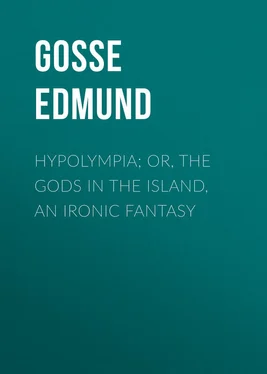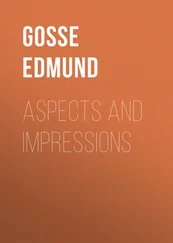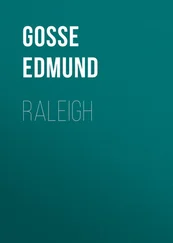Edmund Gosse - Hypolympia; Or, The Gods in the Island, an Ironic Fantasy
Здесь есть возможность читать онлайн «Edmund Gosse - Hypolympia; Or, The Gods in the Island, an Ironic Fantasy» — ознакомительный отрывок электронной книги совершенно бесплатно, а после прочтения отрывка купить полную версию. В некоторых случаях можно слушать аудио, скачать через торрент в формате fb2 и присутствует краткое содержание. Жанр: foreign_antique, foreign_prose, foreign_dramaturgy, на английском языке. Описание произведения, (предисловие) а так же отзывы посетителей доступны на портале библиотеки ЛибКат.
- Название:Hypolympia; Or, The Gods in the Island, an Ironic Fantasy
- Автор:
- Жанр:
- Год:неизвестен
- ISBN:нет данных
- Рейтинг книги:3 / 5. Голосов: 1
-
Избранное:Добавить в избранное
- Отзывы:
-
Ваша оценка:
- 60
- 1
- 2
- 3
- 4
- 5
Hypolympia; Or, The Gods in the Island, an Ironic Fantasy: краткое содержание, описание и аннотация
Предлагаем к чтению аннотацию, описание, краткое содержание или предисловие (зависит от того, что написал сам автор книги «Hypolympia; Or, The Gods in the Island, an Ironic Fantasy»). Если вы не нашли необходимую информацию о книге — напишите в комментариях, мы постараемся отыскать её.
Hypolympia; Or, The Gods in the Island, an Ironic Fantasy — читать онлайн ознакомительный отрывок
Ниже представлен текст книги, разбитый по страницам. Система сохранения места последней прочитанной страницы, позволяет с удобством читать онлайн бесплатно книгу «Hypolympia; Or, The Gods in the Island, an Ironic Fantasy», без необходимости каждый раз заново искать на чём Вы остановились. Поставьте закладку, и сможете в любой момент перейти на страницу, на которой закончили чтение.
Интервал:
Закладка:
Kronos [ loudly, to himself ].
Zeus gave me an orb and sceptre to console me. I used to play cup and ball with them behind his throne.
Rhea [ in a solicitous aside to Hermes].
Oh! it is not true. Kronos' mind now wanders so strangely. He thinks that it is Zeus who has turned him out of Olympus.
Hermes [ in the same tone ].
Do not distress him, Rhea, by contradiction and explanation. I will find modes of amusing him a little every day, and, for the rest, let him doze in the sunshine. His mind is worn so smooth that it fails any longer to catch in ideas as they flit against it. They pass off, glide away. It is useless, Rhea, to torment Kronos.
Rhea.
I shall watch him, all day long. For I, too, am weary. Do not propose to me, with your restless energy, any fresh interests. Let me sit, with my cold hands folded in my lap, and look at Kronos, nodding, nodding. It is very kind of Circe, but we are too old for love; and of you, but we are too old for amusement. Let us rest, Hermes, rest and sleep; perhaps dream a little, dream of the far-away past.
[Circe and Persephone enter from the left .]
Persephone [ to Hermes].
My mother requires so much activity of mind and body. You must not believe that I was neglecting her. But I went forth in despair this morning to see what I could invent, adapt, discover, as a means of rousing her. I am stupid, I could think of nothing. I wandered through the woods, down the glen, along the sea-shore, up the side of the tarn and of the marsh, but I could think of nothing.
Circe.
And when I found Persephone she was lying, flung out among the flowers, with bees and butterflies leaping round her in the sunshine, and the beech-leaves singing their faint song of peace. It was beautiful, it was like Enna – with, ah! such a difference.
Persephone.
Circe does not tell you that I was so foolish as to be in tears. But now it seems that you have invented an occupation for Ceres? You are so divinely ingenious.
Hermes.
I hope it may be successful.
Persephone.
Tell me what it is.
Hermes.
I have found at the back of the palace a small rural waggon, and I have caught two ponies, with coats like grey velvet, and great antelopes' eyes – dear little creatures. I have harnessed them, and now I want you to sit in this cart, while I am dressed like some herdsman of these barbarians, and lead the ponies, and we will go together to coax Demeter out into the fields.
Persephone.
Oh! Hermes, how splendid of you. Let us fly to carry out your plan. Circe, will you not come with us?
Circe.
Or shall I not rather go to prepare the mind of Demeter for an agreeable surprise? Shall you be happy by yourselves, Kronos and Rhea?
Rhea.
Quite happy, for we desire to sleep.
[ Exit Circe to right , Hermes and Persephone to left .]
III
[ A ring of turf, in a hollow of the slope, surrounded by beech-trees, except on one side, where a marsh descends to a small tarn. Over the latter is rising the harvest moon. Phœbus Apollo alone; he watches the luminary for a long time in silence .]
Phœbus.
Selene! sister! – since that tawny shell,
Stained by thy tears and hollowed by thy sighs,
Recalls thee still to mind – dost thou regard,
From some tumultuous covert of this woodland,
Thy whilom sphere and palace? Nun of the skies,
In coy virginity of pulse, thy hands
Repelled me when I sought to win thy lair,
Fraternal, with no thoughts but humorous ones;
And in thy chill revulsion, through thy skies,
At my advance thy crystal home would fade,
A ghost, a shadow, a film, a papery dream.
Thou and thy moon were one. What is it now,
Thy phantom paradise of gorgeous pearl,
With sibilant streams and palmy tier on tier
Of wind-bewhitened foliage? Still it floats,
As when thy congregated harps and viols
Beat slow harmonious progress, light on light,
Across our stainless canopy of heaven.
Ah! but how changed, Selene! If thy form
Crouches among these harsher herbs, O turn
Thy withering face away, and press thine eyes
To darkness in the strings of dusty heather,
Since that loose globe of orange pallor totters,
Racked with the fires of anarchy, and sheds
The embers of thy glory; and the cradles
Of thy imperial maidenhood are foul
With sulphur and the craterous ash of hell.
O gaze not, sister, on the loathsome wreck
Of what was once thy moon. Yet, if thou must
With tear-fed eyes visit thine ancient realm,
Bend down until the fringe of thy faint lids
Hides all save what is in this tarn reflected —
Cold, pallid, swimming in the lustrous pool,
There only worthy of thy clear regard,
A vision purified in woe.
[ The reeds in the tarn are stirred, and there is audible a faint shriek and a ripple of laughter. A shrouded figure rises from the marsh, and, hastening by Phœbus through the darkness, is lost in the woods. It is followed closely by Pan, who, observing Phœbus, pauses in embarrassment .]
Phœbus.
I thought I was alone.
Pan.
And so did we, sire.
Phœbus.
Am I to congratulate you on your distractions?
Pan.
I have a natural inclination to marshy places.
Phœbus.
This is a ghastly night, Pan.
Pan.
I had not observed it, sire. Yes, doubtless a ghastly night. But I was occupied, and I am no naturalist. This glen curiously reminded me of rushy Ladon. I am a great student of reeds, and I was agreeably surprised to find some very striking specimens here – worthy of the Arcadian watercourses, as I am a deity. I should say, was a deity.
Phœbus.
They will help, perhaps, to reconcile you to mortality. You can add them to your collection.
Pan.
That, sire, is my hope. The stems are particularly full and smooth, and the heads of the best of them rustle back with a profusion of flaxen flowerage, remarkably agreeable to the touch. I broke one as your Highness approached. But the wind, or some goblin, bore it from me. This curious place seems full of earth-spirits.
Phœbus.
You must study them, too, Pan. That will supply you with another object.
Pan.
But the marsh water has a property unknown to the Olympian springs. I suspect it of being poisoned. After standing long in it, I found myself troubled with aching in the shank, from knee to hoof. If this is repeated, my studies of reed-life will be made dolorously difficult.
Phœbus.
It must now be part of your pleasure to husband your enjoyments. You have always rolled in the twinkle of the vine-leaves, hot enough and not too hot, with grapes – immense musky clusters – just within your reach. If you think of it philosophically —
Pan.
How, sire?
Phœbus.
Philosophically… Well, if you think of it sensibly, you will see that there was a certain dreariness in this uniformity of satisfaction. Rather amusing, surely, to find the cluster occasionally spring up out of reach, to find the polished waist of the reed slip from your hands? Occasionally, of course; just enough to give a zest to pursuit.
Pan.
Ah! there was pursuit in Ladon, but it was pursuit which always closed easily in capture. What I am afraid of is that here capture may prove the exception. Your Highness … but a slight family connection and our adversities are making me strangely familiar…
Phœbus.
Speak on, my good Pan.
Pan.
Your Highness was once something of a botanist?
Phœbus.
A botanist? Ah, scarcely! A little arboriculture, the laurel; a little horticulture, the sun-flower. Those varieties seem entirely absent here, and I have no thought of replacing them.
Читать дальшеИнтервал:
Закладка:
Похожие книги на «Hypolympia; Or, The Gods in the Island, an Ironic Fantasy»
Представляем Вашему вниманию похожие книги на «Hypolympia; Or, The Gods in the Island, an Ironic Fantasy» списком для выбора. Мы отобрали схожую по названию и смыслу литературу в надежде предоставить читателям больше вариантов отыскать новые, интересные, ещё непрочитанные произведения.
Обсуждение, отзывы о книге «Hypolympia; Or, The Gods in the Island, an Ironic Fantasy» и просто собственные мнения читателей. Оставьте ваши комментарии, напишите, что Вы думаете о произведении, его смысле или главных героях. Укажите что конкретно понравилось, а что нет, и почему Вы так считаете.












